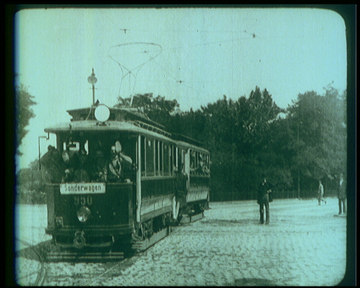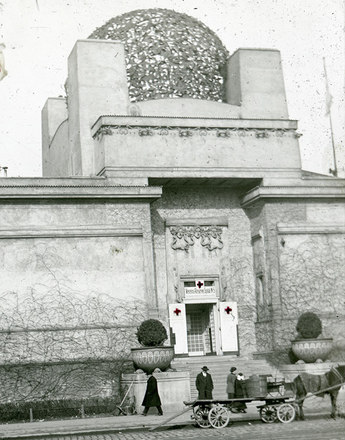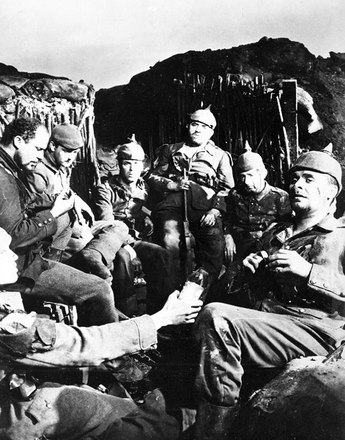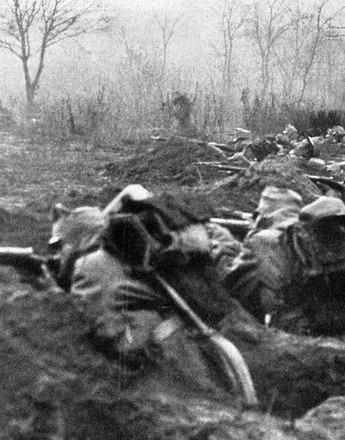War euphoria on film
In spite of the differing attitude of some regions and sectors of society, the people of the Habsburg Monarchy and the other warring nations mostly backed the decision of their rulers. The enthusiasm for war was also captured in propaganda films.
Showing off and sabre rattling, armaments programmes, imperial fantasies and chauvinist rhetoric were the mood of 1914. Representatives of European intelligentsia outdid each other in their enthusiasm and even glorification of the war. A wave of euphoria overtook large sections of the population.
Militarism and patriotism combined in many men with the desire for adventure. The troops of the Austro-Hungarian army marched off enthusiastically to war in 1914. Three out of four men in the Habsburg empire were called up. By 1918 the Danube Monarchy had mobilized more than 8 million men.
The comedy Wien im Krieg (A 1916) offered an amusing look at the changes to everyday life caused by the war. One sequence shows the enthusiasm with which the troops of the Austro-Hungarian army marched off to war in 1914. Recruitment was hyped as a masculine ritual: strength, commitment and combativeness were demonstrated. Acceptance into the army confirmed the manliness of the applicant. The desire to go to war was not questioned, and the emphasis was on patriotism and loyalty.
From autumn 1914 the newsreels from Wiener Kunstfilm (Kriegs-Journal) and Sascha-Filmfabrik (Sascha-Kriegswochenbericht) showed heroic reports of marching to war and life in the field. The films portrayed marching battalions at the start of the war. Peaceful pictures still predominated: the troops taking a break, posing for the camera and finally setting off full of motivation for the front (Compilation of Original Newsreels from the First World War, A/D 1914).
The alliance in 1916 between Sascha-Filmfabrik and the German Messter-Film produced highly effective documentation of the war. The two companies ultimately merged to form Sascha-Messter-Film, which dominated war reporting for two years.
Translation: Nick Somers
Bono, Francesco: Bemerkungen zur österreichischen Filmwirtschaft und Produktion zur Zeit des Stummfilms, in: Bono, Francesco/Caneppele, Paolo/Krenn, Günter: Elektrische Schatten. Beiträge zur österreichischen Stummfilmgeschichte, Wien 1999, 47-75
Leidinger, Hannes/Moritz, Verena: Der Erste Weltkrieg, Wien/Köln/Weimar 2011









